In the last couple of posts, I discussed the subject that many of us have values from our former religions that are not in our new religions. I explored how we may want to leave those behind in favor of the values of the new religion we’ve found, but how it can sometimes be hard to recognize all of the things we brought with us from the old that we may wish to jettison.
In Part 1, I dealt with the issues of pride and humility, suggesting that we Pagans tend to encourage healthy self-esteem in combination with ethical behavior over selflessness and how we might elevate ourselves along with our community through this balance. In Part 2, I discussed the Judeo-Christian concept of sin and how we Pagans deal with morality more through our own personal and communal ethics than through fear of damnation or hope of salvation.
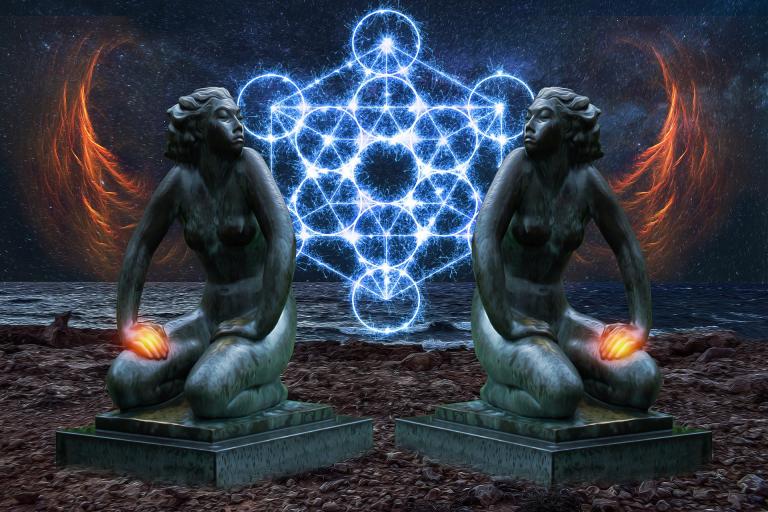
In this next part, I’ll talk about the issue of dualistic thinking. Although Zen Buddhism, the religion I was raised in, is at the opposite end of the spectrum from dualistic thinking, I was talking with my former Craft teacher Valerie. She was raised Fundamentalist Christian and often points out how dualistic Christianity can be.
As she was talking, I realized that I’ve observed this everywhere in Pagandom and that saddens me, because, like Zen, Paganism is non-dualistic. In fact, with our plethora of Deities, it’s downright pluralistic. But just growing up in America, with its Protestant Christian roots, even a Zen boy like me can get dualism under his skin. As with the other articles, I’ll conclude with a spiritual exercise.
In much of Christianity (and I suspect Islam and possibly Judaism too), thinking is black-and-white. If it’s not God, it’s the Devil. If you’re not Christian, you’re damned. If you’re not our denomination, you’re a heretic. If it’s not white, it must be black. If it’s not black, it must be white. No shades of gray. No rainbow of colors.
In a country founded by such people, this can seep into the water we swim in, the air we breathe, get under our skin, and get in our blood. If you’re not liberal, you must be conservative (I’ve been a victim of that assumption even when I’ve been 95% on the same side as a fellow leftist). If you’re not a Democrat, you must be a Republican. If you’re not a jock, you’re a nerd. If you weren’t one of the popular kids in high school, you must be unpopular now. If you’re not a dog person, you’re a cat person (any bird people out there? Cos, I love you too!).
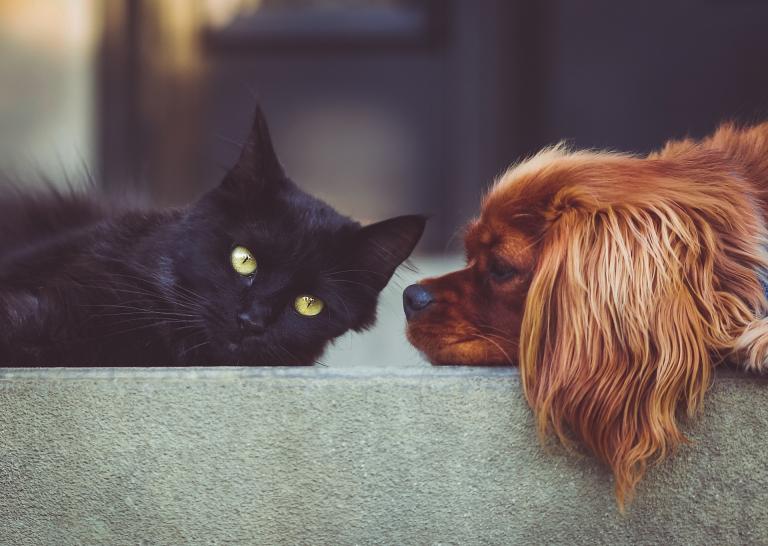
The truth is that things are rarely that simple, particularly when we’re dealing with spirituality, and double that for polytheism, where we can hold multiple values, even seemingly contradictory ones, as equally valid. Paganism is not, at core, dualistic, but rather a rainbow of ideas. It contains dark, light, and everything in between. Being good comes from balance more than from any one side or pole.
Yet I see dualistic thinking pervade even Paganism. Those eclectic Wiccans aren’t real Wiccans like we traditionalists are. Those traditionalists are too uptight to be doing real witchcraft like us eclectics. Those Anderson Fairy people are too artsy-fartsy to be legit witches, like us Brit Trads. Those Brit Trads are too caught up in formality to just do what works, like we Anderson Fairies. Wicca isn’t real Paganism, like Reconstructionism. Reconstructionism doesn’t really go back to ancient times like Wicca does. You should never do that because that’s black magic. Don’t mess with me or I’ll do black magic on you. Etc., etc., etc.
I’ve heard enough and I’m tempted to yell, “you’re all being a bunch of Christians,” but I recognize the irony. Yet this way of thinking can seriously corrode our community. I’ve heard not-so-feminist Pagans gripe about all the feminism in Pagan Witchcraft and feminists deride the same as not being real Witches because they don’t share their politics. While I identify as a feminist myself, I also know of one non-Witchcraft organization that was skewed more toward the Reconstructionist / Devotional Polytheist end of things that got infiltrated by feminist witches who forced the group to affirm the existence of the Triple Goddess. That’s not my brand of feminism!
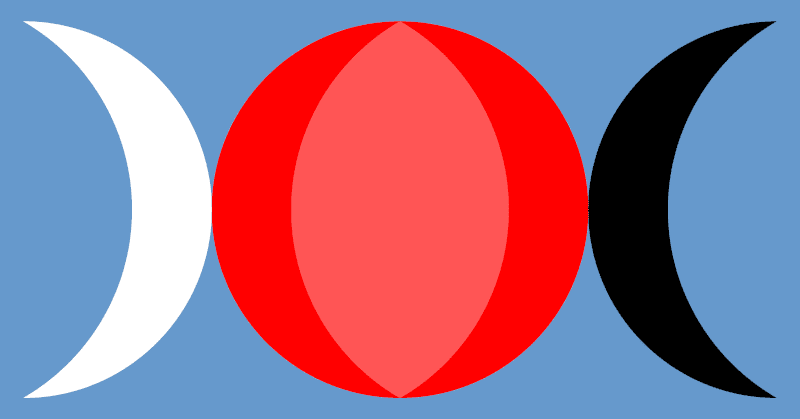
We should support religious freedom all the more because we’re oppressed by mainstream culture, not oppress our fellow Pagans in a misguided attempt to promote an important socio-political movement. I also know of another Pagan organization that exploded over whether it was more important to have board members with particular skills, like lawyers, accountants, etc. (who might very well be non-white, LBGTQ+, female, trans, etc.) versus insisting that the board be diverse by numbers.
I won’t weigh in with a political opinion, because that’s not the point. My point is that, often times, these political views needn’t be seen as opposing. A Pagan group can be feminist without having the Triple Goddess. It can look for people with certain skills to fill board seats while also having an eye to a diverse board.
Weirdly, I’m also seeing an anti-sex backlash within the Pagan community, which has surprised me, since Paganism has traditionally been very sex-positive. Much of this seems to be fueled by wanting to protect people, particularly women, from predators, harassment, and the like. But sex-positive culture, as I understand it, is anathema to sexually predatory culture anyway. So, it’s completely synergistic to have sex-postive, anti-predatory, consent-based culture.
What I’m seeing, here, is dualistic thinking. The logic seems to be that, if someone’s primary goal is to fill board seats with people with particular skills rather than putting diversity before skills, that somehow that person must want to populate the board with straight, white, cis-men, because that’s the opposite of making diversity the primary goal.
If someone is strictly polytheistic with lots of Goddesses, but not the Triple Goddess, it must, somehow, be anti-feminist. If one’s fellow Pagans are sex-positive, they must be predator-positive. If it’s not black, it must be white. If it’s not white, it must be black. Clearly, this is muddled thinking and I think it comes from Christian dualism.
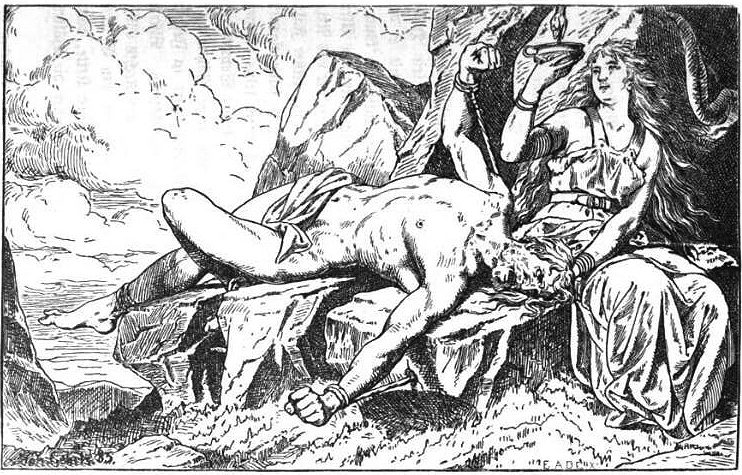
The Horned One is not the Devil. Loki is not Satan. Tiamat may be a monster, but She’s also a divine creatrix. Working magic to protect your community from violence is not a sin against the Wiccan Rede. If you disapprove of how another Pagans worship, who cares? Not I, not they, and, hopefully, not you.
We are as pluralistic as the Deities we worship. I hope we can see beyond black and white to something more mystical. The late Isaac Bonewits had paradox as one of the laws of magic. In his book Real Magic he suggested that two things can contradict (or seem to) in magic and yet both be valid, viable, and true. There are real issues as well as fake ones. There are also real issues that people have created fake aspects of and fake issues that contain real ones.
If we can jettison this Judeo-Christian habit of dualistic thinking and see beyond, we can tease out what’s really important to us. More importantly, we can get along better if we can learn to sit with the apparent contradictions. Doing so will allow us to stop wasting time shaking our fingers at our fellow Pagans, and focus more on our own spiritual development.
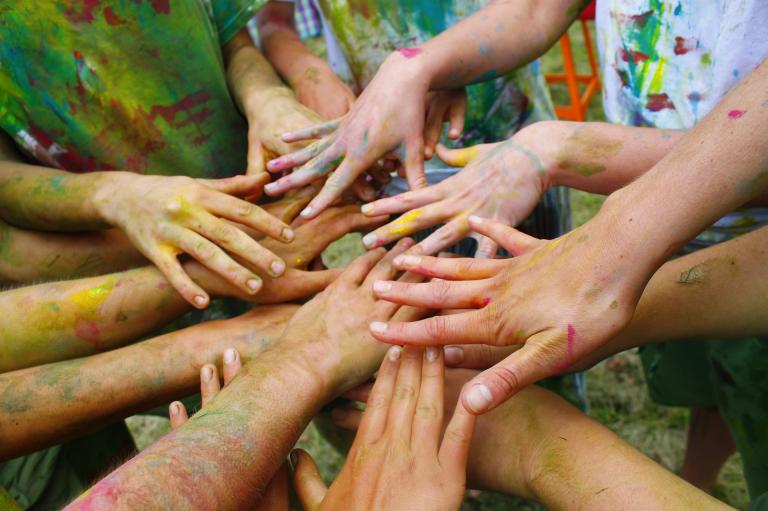
It will open the way for us to see past our prejudices and toward understanding why different Pagans practice differently. It will help us harmonize diverse goals within a united community. And… it will make us better devotees of the cornucopia of Deities that we and our Pagan brethren honor.
As with the last two posts, I have a spiritual exercise you may want to try. Once again, since we all have different ways of creating sacred space, I’ll leave it to you to do that in your own way. As I also said last time, I’ve found that we can never rid ourselves of something within us. We can only change it.
As the Thelemites say, “there is no part of me that is not also a part of the Gods” (and, yes, there are lots of really wonderful Thelemites, even if Crowley was “the wickedest man in Britain”… and “wicked” old Crowley had some wonderful inspirations sometimes). So, I’d encourage you to look deep inside and see that part of you that still clings to the idea that everything has to be black-and-white duality. The goal of this exercise is to change this inner misguided spirit.
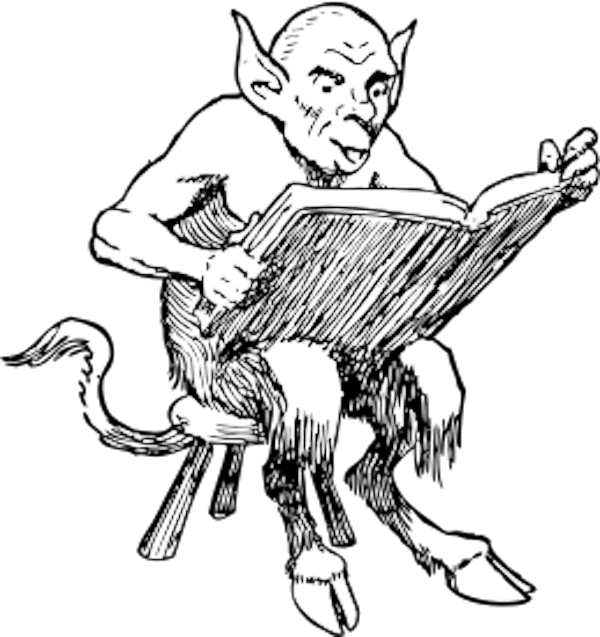
1. Create sacred space however you do that and call on whatever Deities or spiritual beings you work with, particularly any patrons you might have, and particularly any ones that are good at this sort of work. Deities of transformation come to mind, as do healers, since this is really a type of healing.
2. See (and maybe even feel, smell, taste, and hear) this false, dualistic tendency within you that you want to get rid of. What does that look like to you? You might even visualize it as a creature of some sort: an unruly spirit within you waiting for guidance. You might even include the sound, smell, touch, and, yes, even taste of this being. Remember that it’s a part of you.
3. Talk to this being. It’s part of you, so you can talk to it. Find out why it is the way it is. Rather than being adversarial to it, I strongly suggest coming to it with compassion. You may find that, misguided as it is, it’s acting for reasons that it thinks are good (and maybe, at some level, we have been encouraging it, even if we now need to stop doing so). It may be as simple as wanting to be “the good guy” (understanding “guy” as non-gendered) and thinking you can only define yourself as “the good guy”, if you define some others somewhere as “bad guys”.
4. Thank it for all its attempts to help, but explain to it why its behavior and outlook are problems. Explain that you’re communicating with it in a non-judgmental way, but, also explain that it can serve you better by relinquishing this notion of black-and-white dualism and, instead, helping you follow you transcend dualism as part of your spiritual path.
5. Will that, for the greater good of both you and humanity, it transform itself to perceive multiplicity and even sit with paradox (or seeming paradox). Visualize this (and maybe smell, hear, touch, and perhaps even taste it) until you see a full picture in your mind of the new being: one who represents this Pagan value of multiplicity and diversity. For my money, I’d visualize a rainbow. See it transform into this. If you have any trouble, ask your Deities or spirit helpers for help, but remember that you’re just changing yourself, so you have the right to decide how you’re going to be. Rather than seeing it as a battle, transform it with love. It may take a great act of love and will to transform yourself from a person who thinks everything’s black and white, and is afraid to open your eyes to pluralism and complexity, to a person strong enough to see past apparent contradictions. So, turn on the love and try to get this being, which is part of you, to be on your side.
6. When you see (feel, sense, etc.) that this part of you has been transformed, thank it, and thank whatever spiritual beings and Deities you’ve called, and then open sacred space.
Afterwards, I’d encourage you to let this be the magical act that it is. Avoid talking to others about it or even thinking much about it. More than mere psychology, this is magic. Let go of worrying whether it worked or didn’t work. Allow yourself to let go of thoughts of it, while also allowing those thoughts to come. Just let it flow.

















